Healthier Soda Brands: A Review
Written by:
Maia James
06/10/2023
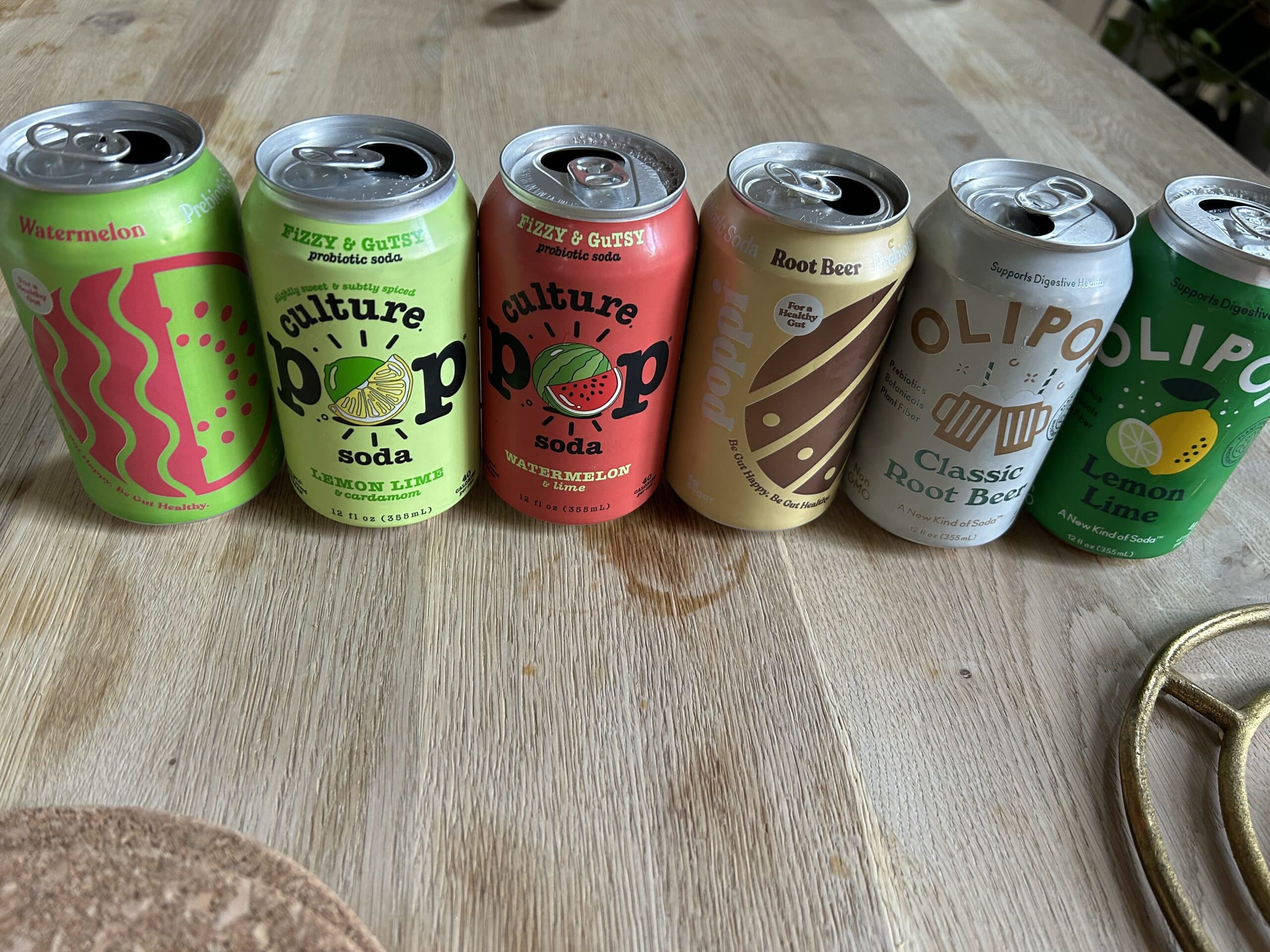
Updated: 06/10/2023
Looking for a different guide? Browse them all HERE.
During each of my pregnancies, I had crazy root beer cravings. Back then, my best choice was a natural root beer from Virgil’s. While this is certainly healthier than an A&W, there is no health benefit to drinking this kind of soda, natural or not, because it packs a ton of cane sugar into one bottle–as much as 42 grams!
These days, there are several brands of sodas that market themselves as health food. These companies claim that their beverages are not only better for you than Coke and Mountain Dew, but actual sources of nutrition.
We set out to see if there is truth behind these claims, and also if these healthy sodas actually taste good. The brands I see most here in Brooklyn are Olipop, Poppi, and Culture Pop, so those are the three we reviewed for this post.
Gimme’s certified holistic health (my mom!) evaluated the sodas for their nutritional value, and we asked a couple of 9-year-olds to weigh in on how these tastes.
First, let’s see if any of these sodas can be considered truly healthful. It’s definitely true that all of these are better for you than regular soda, but we wanted to take it a step further and find out if their nutrition claims are true.
Is Olipop Soda Healthy?
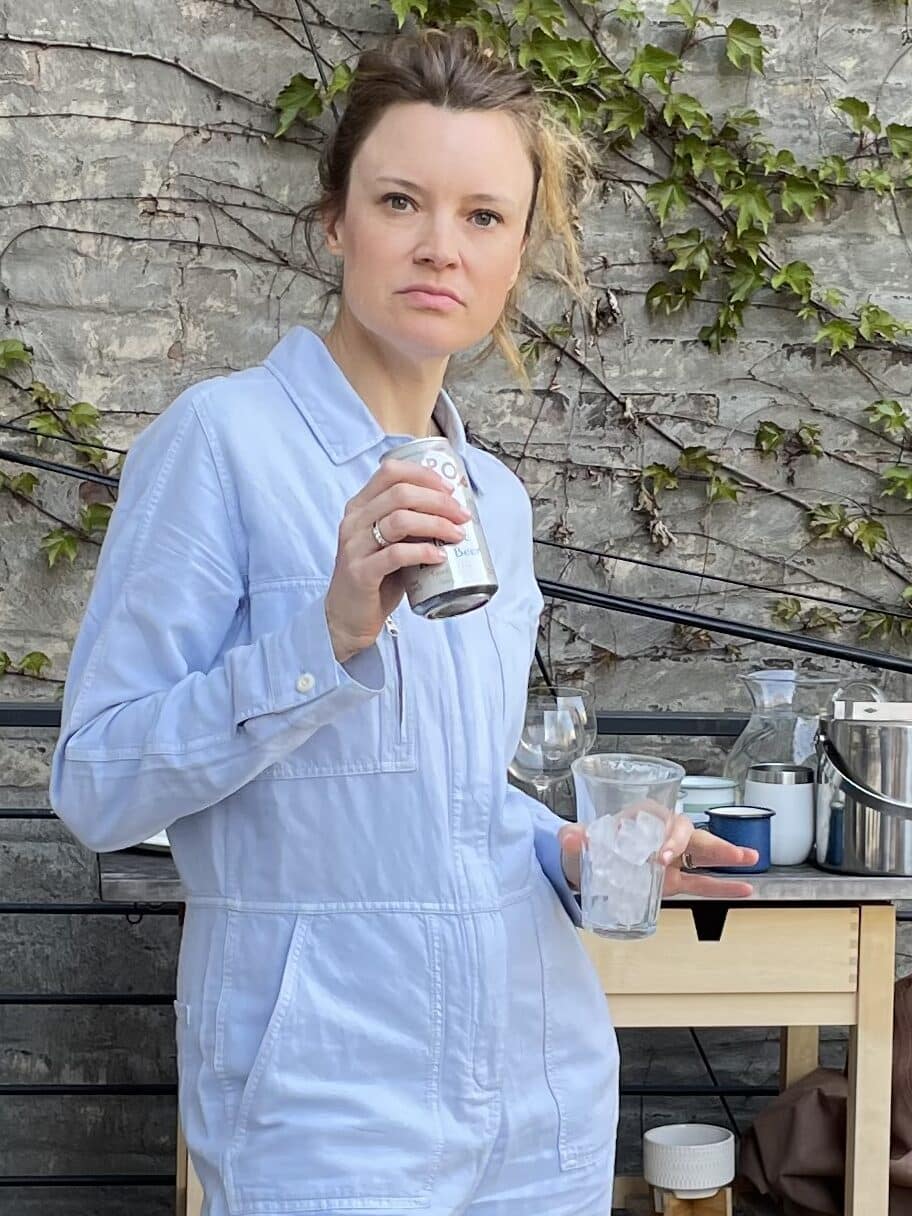
Olipop soda claims that it was designed to improve your gut microbiome, and each can has 9 grams of fiber, a max of 5 grams of sugar, and 45 calories.
Olipop is sweetened with stevia and apple juice concentrate, and contains botanicals plant fiber like cassava root, chicory root, Jerusalem artichoke, and kudzu root, all of which serve as prebiotics.
Three Olipop flavors–Vintage Cola, Cherry Cola, and Dr. Goodwin–contain caffeine from green tea.
Our verdict: Olipop is Good Stuff. Olipop does contain natural flavor and juice concentrate, neither of which we consider Good Stuff. But Olipop’s lack of sugar and addition of prebiotics make this an excellent alternative to regular soda.
Use code GIMME15 for 15% off on the Olipop website.
Is Poppi Soda Healthy?
Poppi’s health benefit claims come from the inclusion apple cider vinegar (ACV) in every can. ACV has long been considered a health food, with purported benefits including improved digestion, lower cholesterol, and weight loss.
In addition to ACV, each can of Poppi contains organic cane sugar, fruit juices, agave inulin, and stevia. Most flavors have 25 calories and 5 grams of sugar. The Classic Cola flavor contains caffeine concentrate.
Our verdict: Poppi is Okay Stuff. While Poppi’s sodas are healthier than traditional brands, studies that prove the health claims of ACV are lacking. Moreover, Poppi’s soda does contain white sugar, albeit a small amount, as well as juice concentrate and natural flavors.
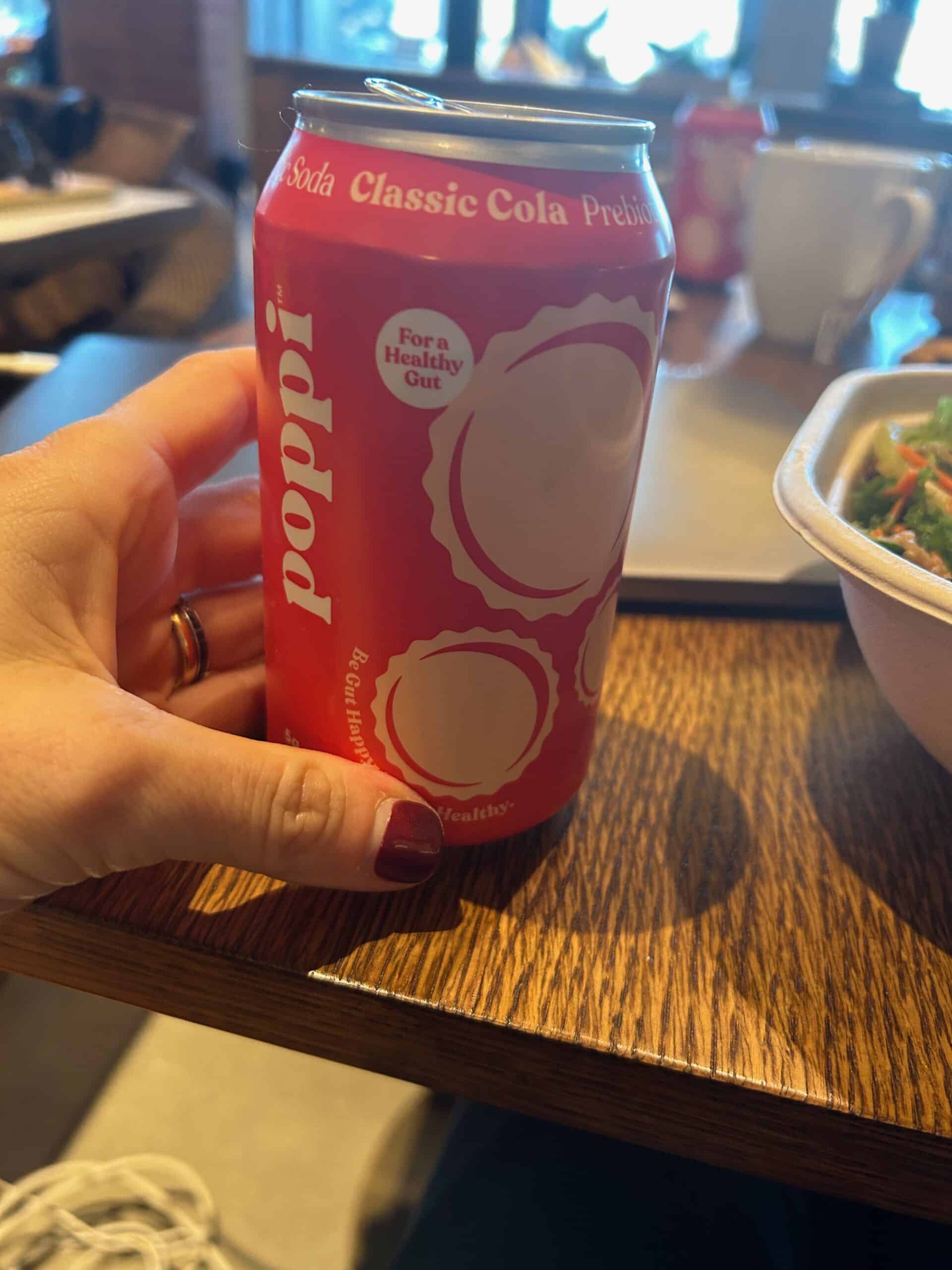
Is Culture Pop Soda Healthy?
Culture Pop is the only soda brand that contains probiotics. Each can has billions of CFU’s (colony forming units), along with organic fruit juices, spices, and herbs.
With 40 calories per can and only 6 grams of sugar from fruit, Culture Pop is a great option for those of you who cannot tolerate the fake sugar taste of stevia. This brand has no cans with caffeine.
Our verdict: Culture Pop is Good Stuff. Like the other brands we reviewed, Culture Pop contains juice concentrate and natural flavors–neither of which we love. But the lack of any cane sugar and the addition of probiotics makes this a soda substitute with science-backed gut health benefits.
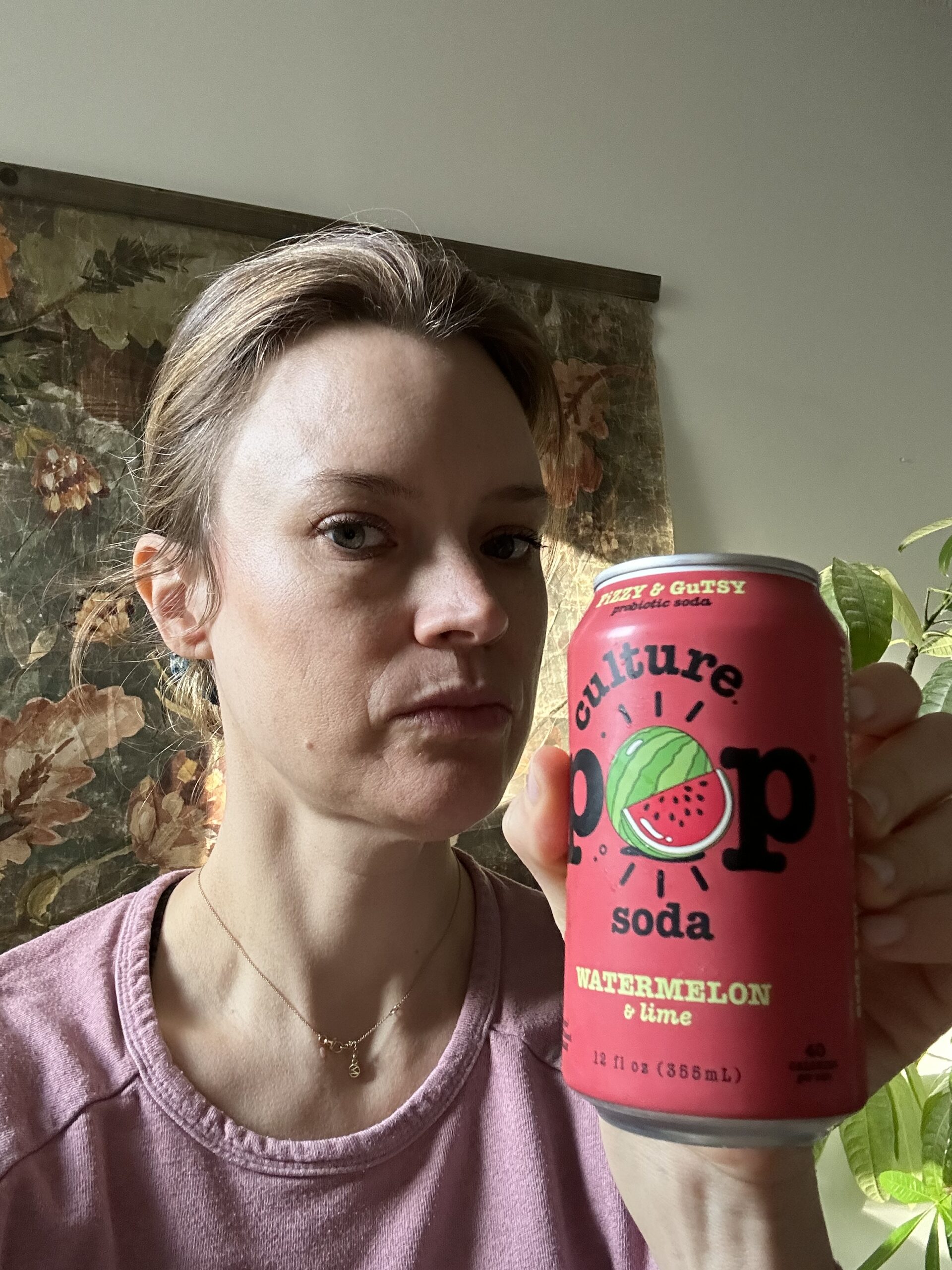
Olipop, Poppi, Pop Culture: Which Tastes the Best?
Nutritionally, all of these brands are a great upgrade from regular soda. So now we wanted to find out if any of these can compete with the real thing–and which is the most delicious (or least gross?) among them.
Our taste-testers included two adults (my husband, Daylon, and me), and two 4th graders (Wolfie and his friend Nick). We took three flavor profiles head to head.
Olipop Lemon Lime Vs. Culture Pop Lemon Lime
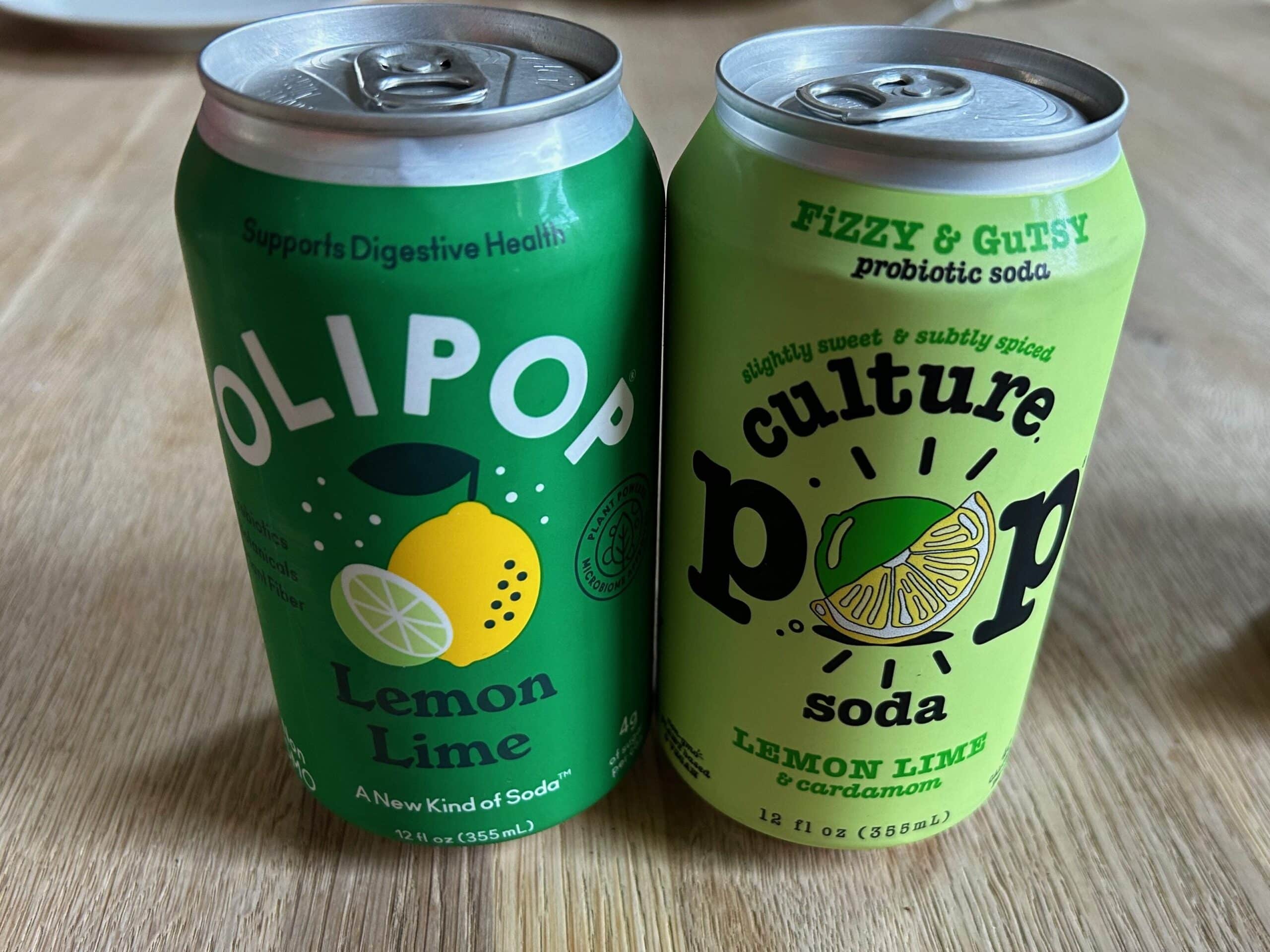
We all agreed that the Olipop Lemon Lime is gross. It was Wolfie’s least favorite flavor of all six cans that he tried, and between all four of us we couldn’t get through half the can. To me, the artificial sugar taste (stevia) was just way too prominent in this one. Nick said it tasted too much “like honey.”
As for the Culture Pop Lemon Lime & Cardamom, Nick hated it, but this was Wolfie’s favorite of all six cans he tasted. I really liked this one, too, and Daylon agreed that it was tasted.
Olipop Root Beer Vs. Poppi Root Beer
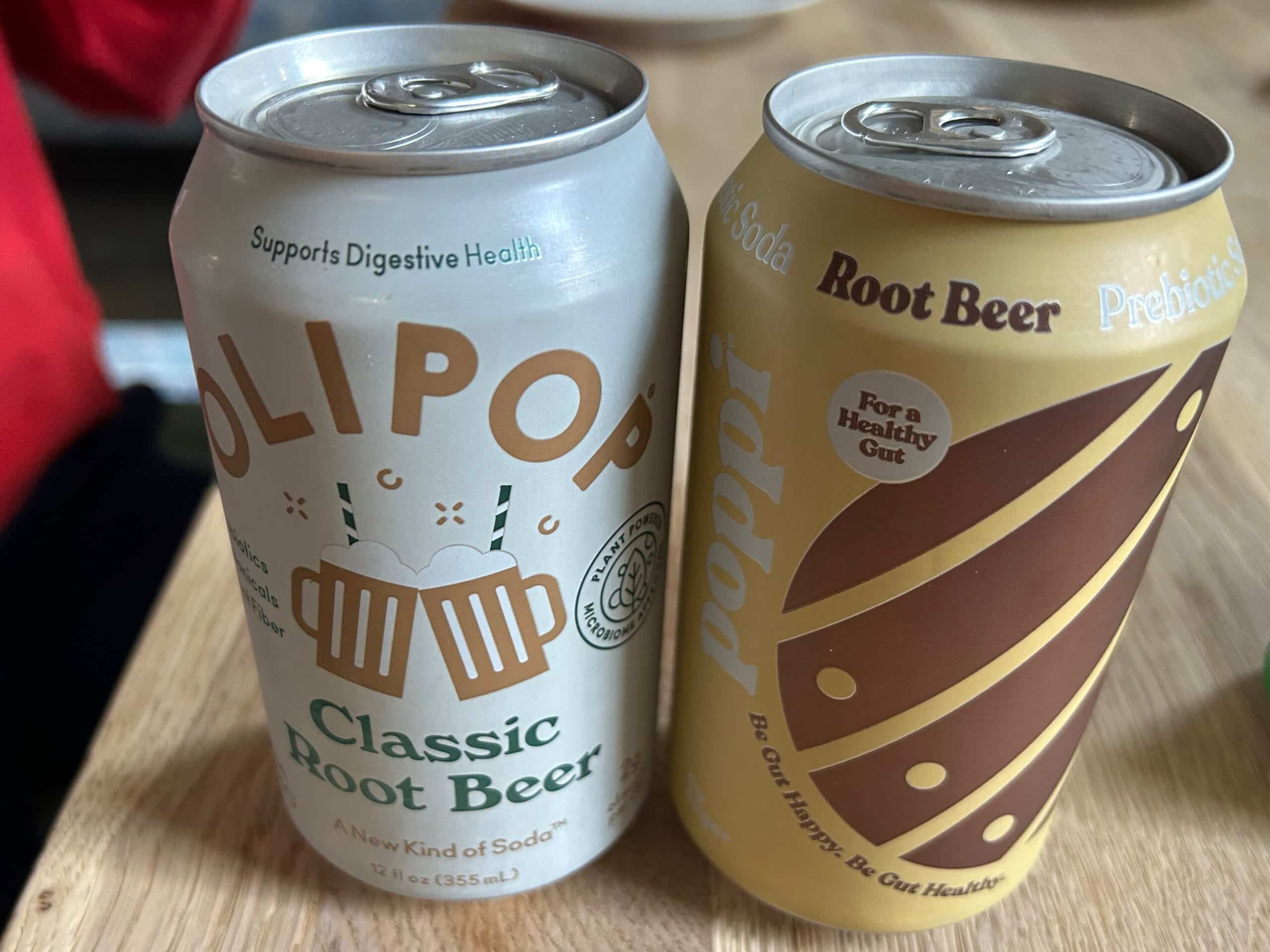
If you follow me, you know I am seriously obsessed with Olipop’s root beer. I drink a couple cans of this each week, and to me it’s the closest approximation to “real” root beer that I’ve tried.
Poppi’s version of root beer is also tasty, and while Nickandr Wolfie “hated” both root beers, they did prefer the Poppi to the Olipop.
Daylon hated both of these, but that’s not surprising because he hates any diet soda, including the ones make with stevia.
Culture Pop Watermelon Versus Poppi Watermelon
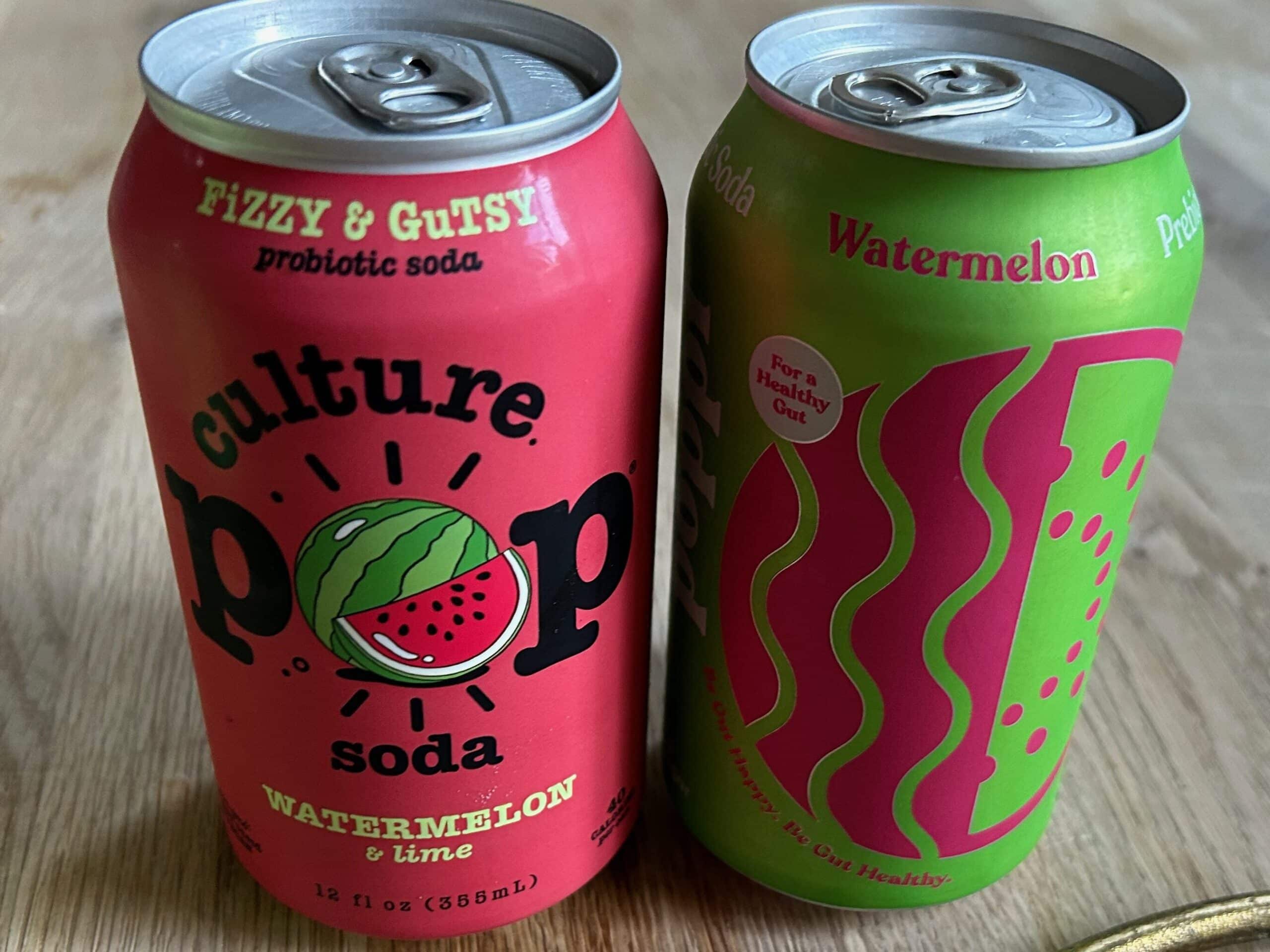
In a shocking twist, both Nick and Wolfie loved Poppi’s watermelon flavor. I didn’t think we were going to win them over with any of the stevia-sweetened cans, but they declared that it tasted “just like PRIME!” (If your kid has not yet had Prime energy drink, consider yourself lucky.) Daylon and I both hated the Poppi watermelon–it was cloyingly sweet with that unmistakably fake sugar taste.
Of the Culture Pop watermelon flavor, Nick said: “Gross! This tastes like seltzer, and I hate seltzer!” Wolfie, Daylon, and I all really liked it, though (and we all love seltzer).
A Note on Zevia
Zevia is a well-known brand that uses stevia as its sweetener. While there is nothing inherently wrong with stevia, some people may not prefer its taste. Zevia also uses “natural flavors,” which aren’t great. Zevia is a better option than traditional soda, but it doesn’t offer any health benefits.
Final Verdict on Taste
Our taste-testers opinions differed, as you can tell. Overall, the adults agreed that Culture Pop is the tastiest brand, likely because it’s the one that doesn’t rely on calorie-free sweeteners like stevia. I do hope that Culture Pop branches out into some more traditional soda flavors, since for now they only make fruit blends. Wolfie liked the Culture Pop flavors, too, but Nick hated them, probably because he doesn’t like seltzer and they are the least sweet.
Neither Olipop nor Poppi’s fruit flavors are very tasty, but if you can tolerate stevia and you crave cola or root beer, both of these brands make passable versions.
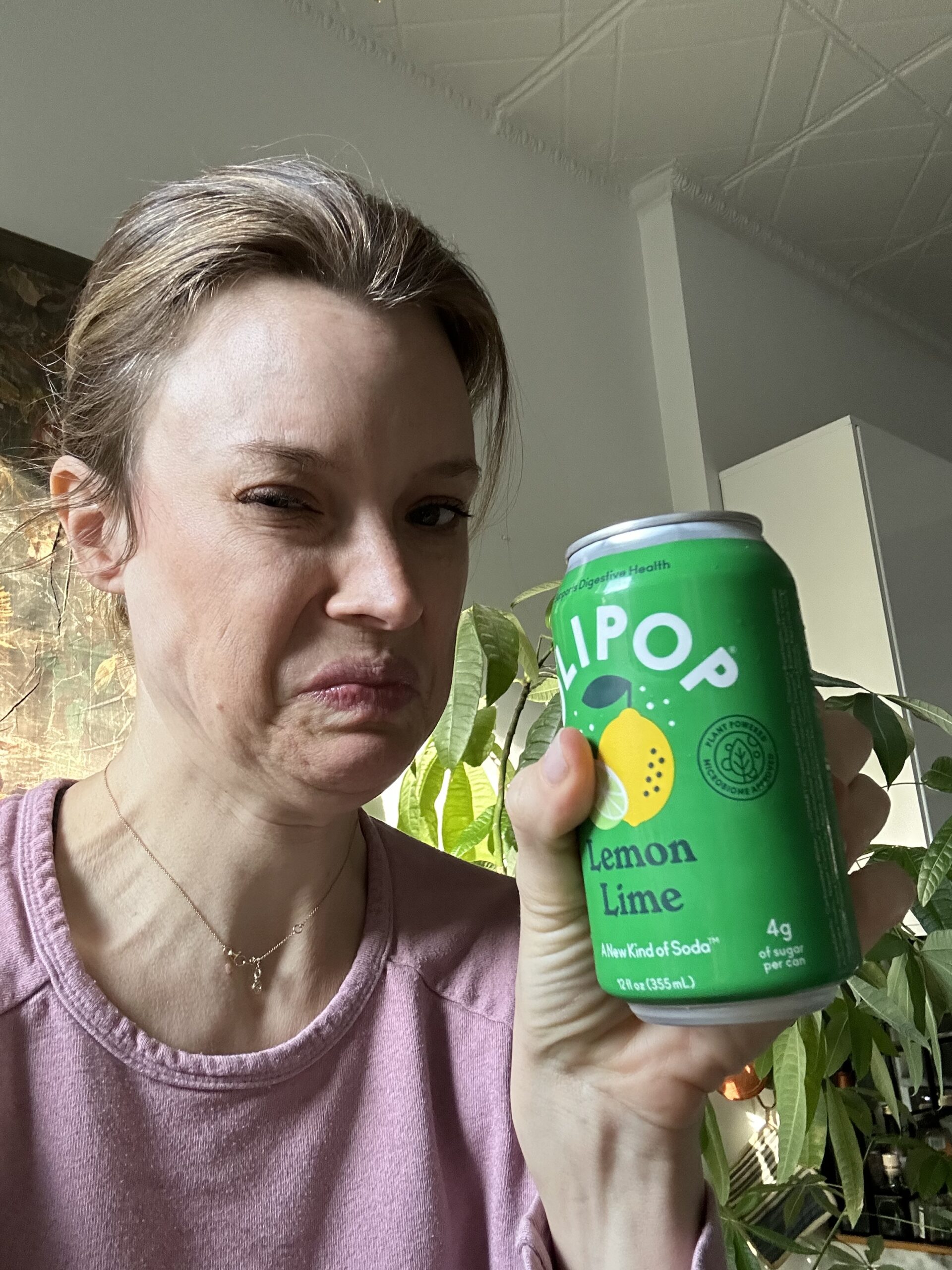

Final Verdict on Health
We don’t think that drinking any of these “heatlthy” sodas is going to dramatically improve your health. Yes, they can help boost your fiber intake, and provide some probiotics in the case of Culture Pop, but you can also do this by eating more plant foods and taking a good probiotic supplement (guide on this is coming!).
We think Olipop and Culture Pop are healthier than Poppi, mostly because there isn’t great science about the health benefits of AVC and because Poppi contains cane sugar.
If, like me, you have a kid who doesn’t eat a lot of fermented foods, Culture Pop is a treat that does double duty by packing some probiotics.
I wouldn’t overdo it with any of these healthy sodas, but enjoying a can as a treat is a major upgrade to whatever soda habit you currently have.
Stay sane,


Maia, Founder & CEO
Note: This article contains affiliate links or sponsored content, which means that if you make a purchase, we may earn a commission. We only recommend products that meet our strict standards for non-toxicity and that we use (or want to use!) ourselves. Thank you so much for supporting the brands that make Good Stuff!
Enjoying this guide?
Join 60K families who rely on our free guides on everything from milk to mattresses! Sign up to get $5 off your first order, access to our ultimate Clean Products Cheat Sheet, and ongoing exclusive access to coupon codes and promotions. Our weekly newsletter is filled with well researched tips and tricks to live a toxin-free lifestyle.
Related Posts
Healthy Store Bought Oat Milk Guide 2024
How To Avoid Drinking Toxic Tea
The Healthiest Organic Wine Brands We’ve Found
Healthy Yogurt Guide
2 responses to “Healthier Soda Brands: A Review”
-
Maia, this article has one major blind spot—pretty much all aluminum cans are what I would consider toxic due to the BPA lining inside the can (or bps or bpf or whatever regrettable substitution they’re using).
Thoughts on this?
-
We agree. The only way to avoid BPA and Forever Chemicals is to buy products in glass containers
-

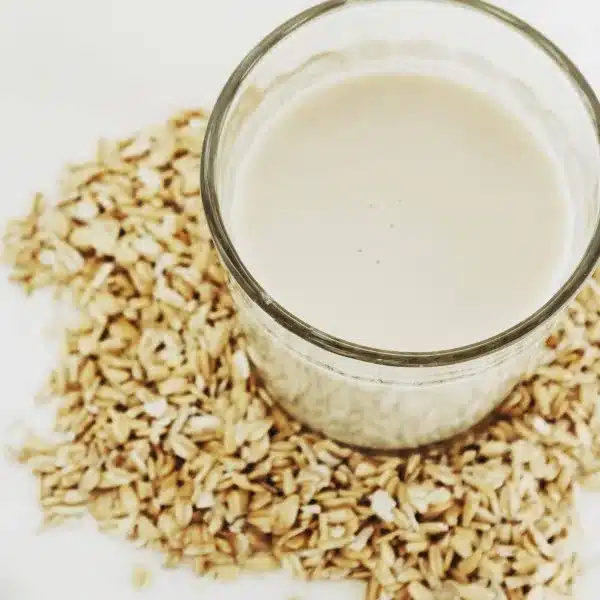
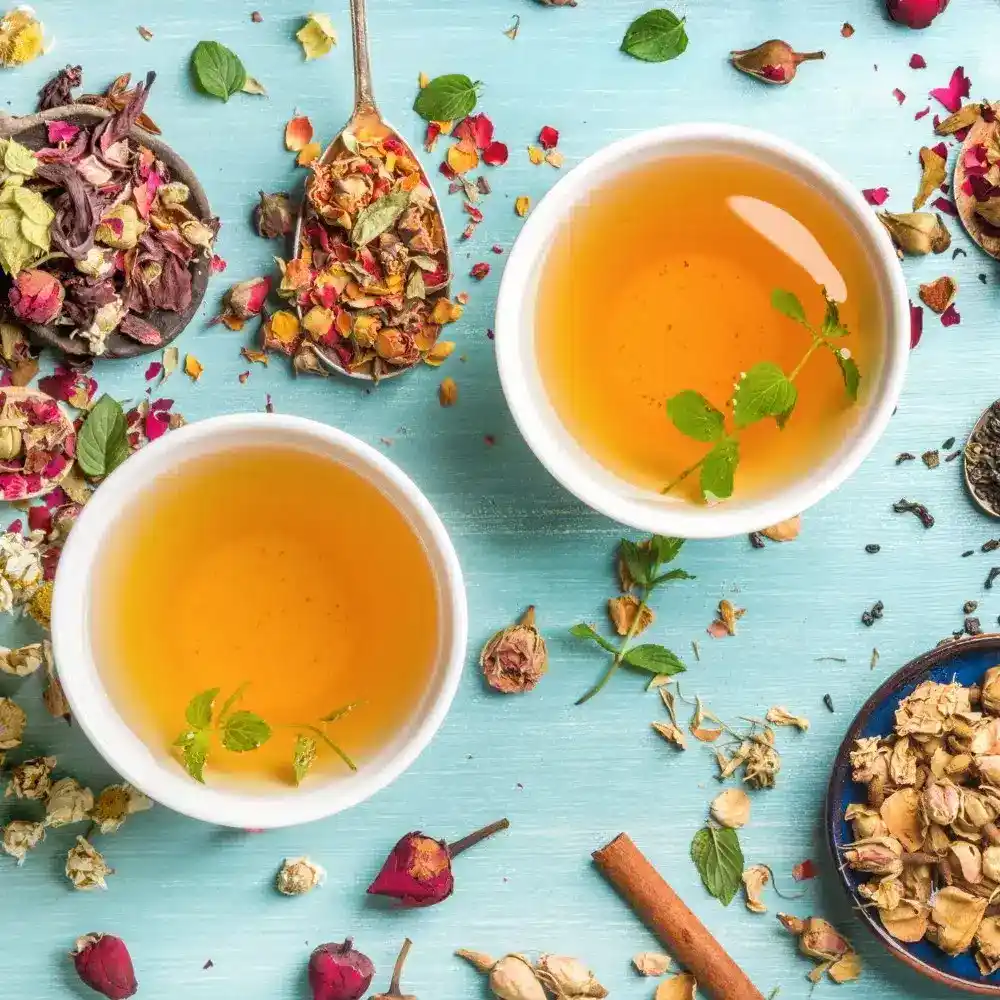


Leave a Reply
You must be logged in to post a comment.